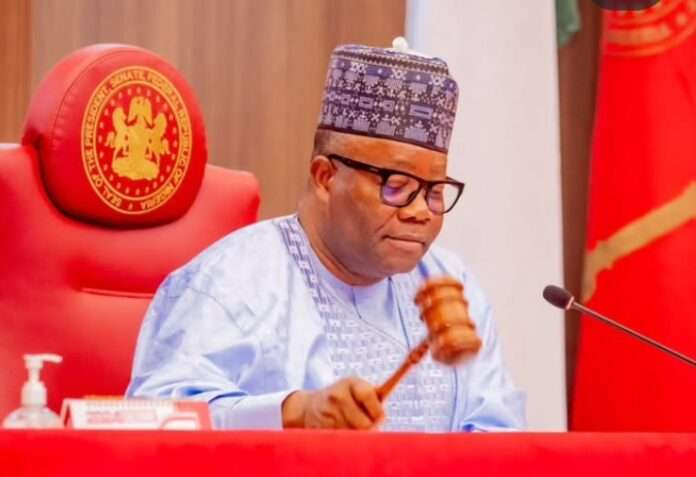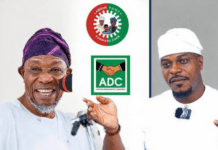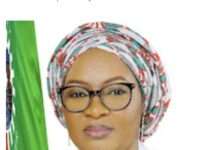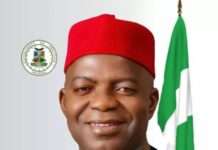NASS Moves to Hold 2027 Elections in November 2026 — Nigerians Kick, Raise Governance Concerns
The National Assembly’s fresh proposal to shift Nigeria’s next general elections from February 2027 to November 2026 has stirred widespread outrage across the country. While lawmakers insist the move will ensure all election petitions are concluded before new leaders are sworn in, many Nigerians see it as a ploy that could cripple governance and plunge the nation into endless campaign politics.
Lawmakers Defend Proposal
According to details contained in a draft amendment to the 2022 Electoral Act, federal lawmakers want future presidential, governorship, national and state assembly elections conducted not later than 185 days before the expiration of an administration’s tenure.
If approved, the next general elections would hold on November 20, 2026, six months earlier than the traditional February–March cycle.
Explaining the rationale, Adebayo Balogun, Chairman of the House Committee on Electoral Matters, said the change aims to end prolonged post-election litigations that often drag into the tenure of newly elected officials.
“We are proposing this adjustment to allow enough time for all election cases to be concluded before the swearing-in of elected officials,” Balogun said.
He added that the proposal also seeks to reduce the time for election tribunals to deliver judgments from 180 days to 90 days, while appeals must be concluded within 60 days, leaving adequate time for the Supreme Court to give its final verdict before inauguration.
The lawmakers also introduced a provision for early voting to accommodate security agents, INEC officials, accredited journalists, and election observers who perform essential duties during elections.
Critics Warn of Governance Paralysis
Despite its intended benefits, the proposal has sparked backlash from opposition parties, civic groups, and public commentators who fear it will undermine governance and destabilize the political system.
The African Democratic Congress (ADC), through its interim publicity secretary Bolaji Abdullahi, described the move as counterproductive, warning that it would turn Nigeria into a nation in perpetual campaign mode.
“By cutting the current political calendar by six months, the proposal threatens to push Nigeria into a state of permanent electioneering, where politics dominates governance and development is perpetually on hold,” the ADC said in a statement.
The party further noted that the real issue is not election timing but institutional inefficiency in the judiciary and the Independent National Electoral Commission (INEC).
Supporters: ‘It Will Reduce Electoral Fraud’
Some legal and political analysts, however, believe the amendment could help reduce electoral manipulation by limiting the influence of incumbents.
Lagos-based lawyer, Kayode Akiolu, argued that holding presidential and governorship elections on the same day would weaken the chances of coordinated rigging between federal and state actors.
“If both elections were held on the same day during the 2023 polls, the federal influence that helped the ruling party in some states would not have been possible,” Akiolu said.
He maintained that simultaneous elections would make politicians focus on their own campaigns rather than interfering in others’.
Analysts Call for Institutional Reforms Instead
Public affairs analyst Prince Johnson Meekor faulted the proposal, insisting that the solution to Nigeria’s electoral challenges lies in strengthening institutions, speeding up judicial processes, and enhancing electoral transparency.
“Other democracies like Kenya, Indonesia, and Ghana conclude presidential election petitions within weeks, not months. Nigeria should focus on reforming institutions, not shifting election dates,” Meekor said.
He warned that the proposed amendment, if passed, could deepen political distractions and reduce the government’s focus on service delivery.
What Nigeria Stands to Gain or Lose
Potential Benefits:
- Timely resolution of election disputes before new leaders are sworn in.
- Reduced electoral interference by incumbents.
- Greater voter confidence in the justice process.
Possible Drawbacks:
- Early campaign activities could derail governance.
- Misuse of public funds for election purposes.
- Shortened tenure focus leading to incomplete projects and policy stagnation.
While the National Assembly insists the November 2026 election proposal will strengthen democracy by allowing all petitions to be resolved before inauguration, critics fear it could backfire — creating a governance vacuum and turning Nigeria into a campaign-driven nation.
The coming months will reveal whether this bold amendment becomes a milestone in electoral reform or another misstep that sacrifices governance for politics.










